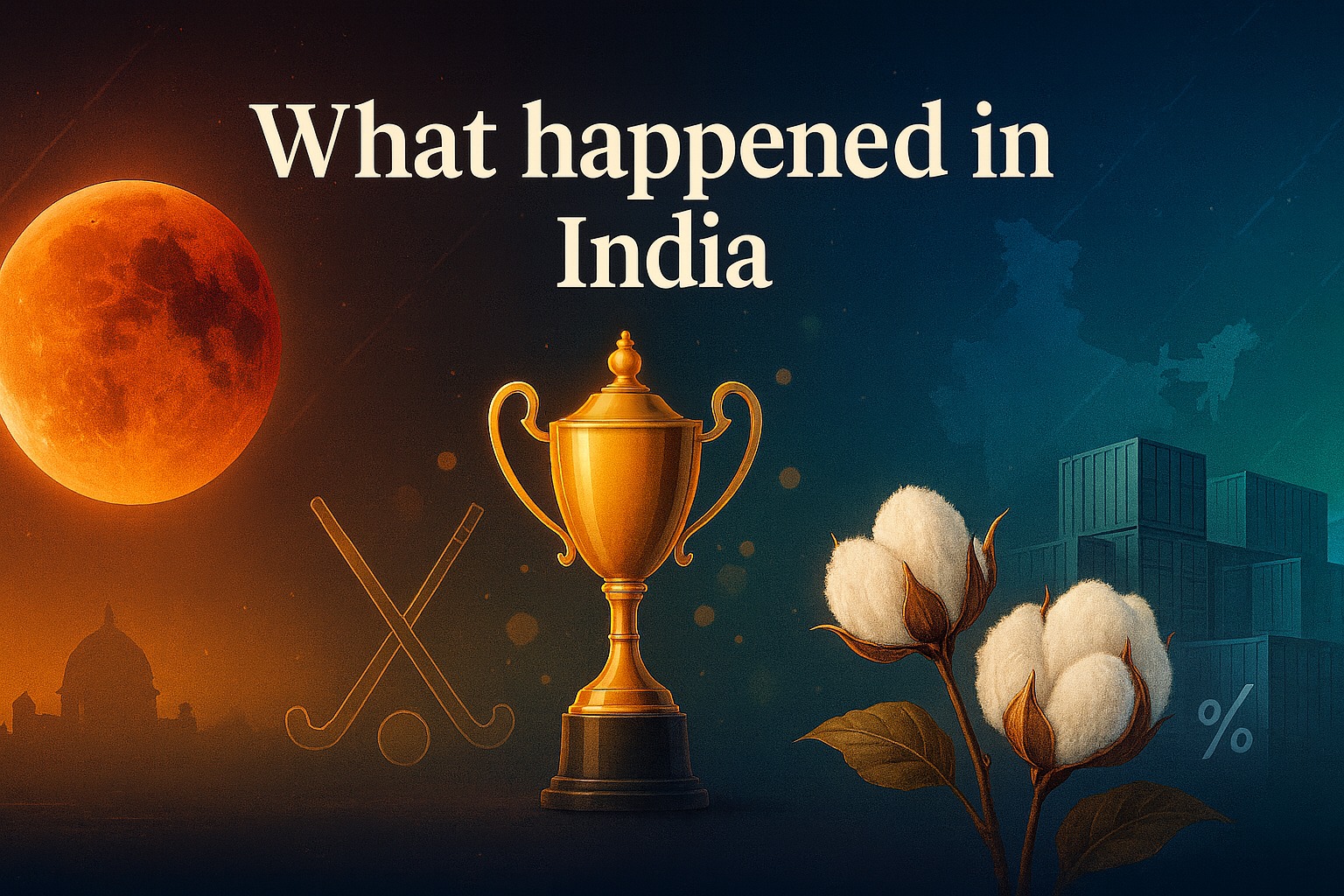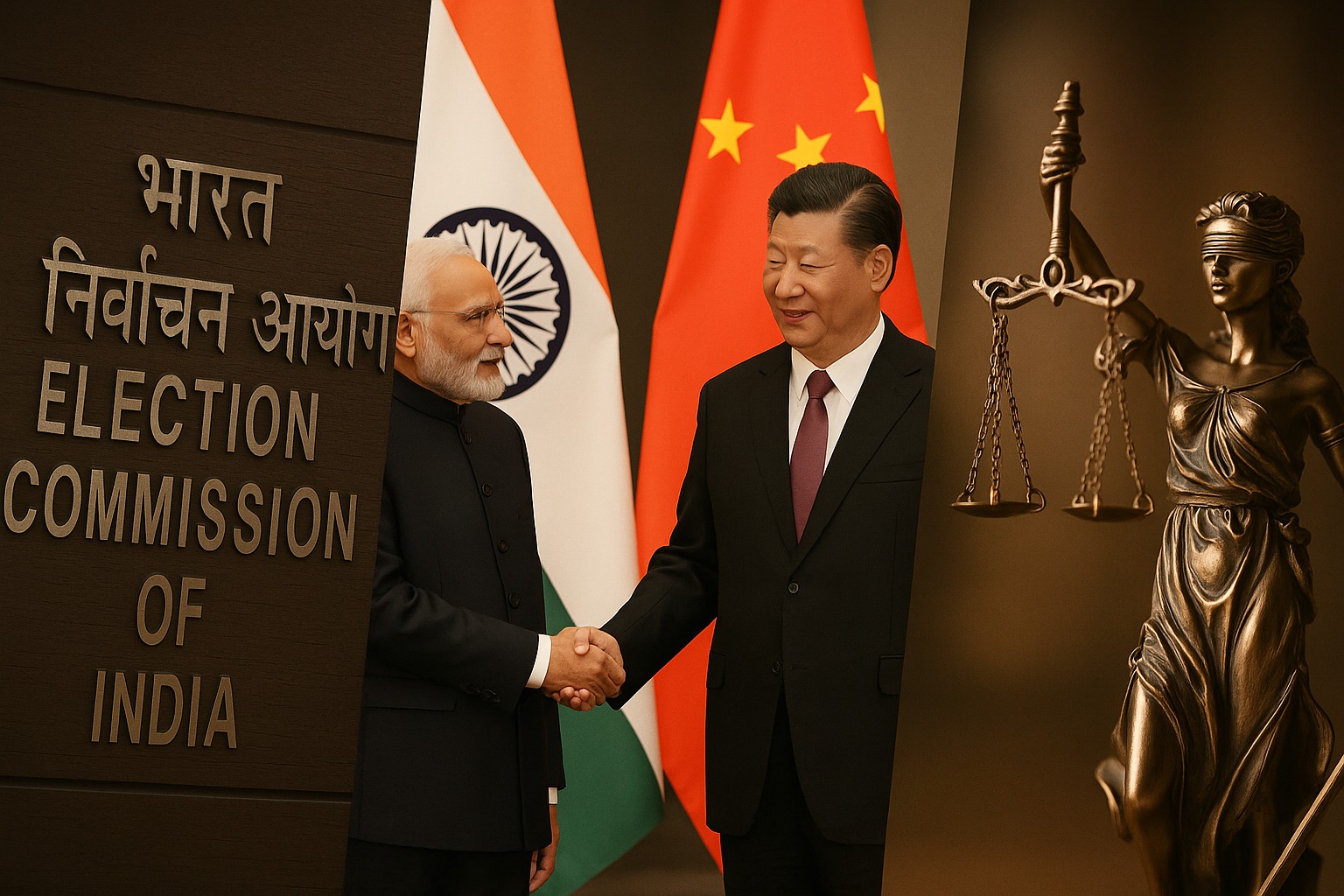A wave of significant developments spanning politics, international relations, scientific discovery, sports, and cultural preservation has shaped India’s national narrative this week. From a key political appointment to a historic achievement in the world of chess, these events collectively highlight the nation’s multi-faceted growth and its evolving position on the global stage.
C.P. Radhakrishnan Elected India’s 15th Vice President
In a decisive victory, National Democratic Alliance (NDA) candidate C.P. Radhakrishnan was elected as India’s 15th Vice President, securing 452 votes against his opponent, B. Sudershan Reddy, who received 300 votes. The election, which took place in Parliament House, underscores the ruling coalition’s numerical strength and sets the stage for a smoother legislative path.
As the Vice President, Mr. Radhakrishnan will assume the critical role of Chairman of the Rajya Sabha, the upper house of Parliament. His position is vital for the government’s ability to navigate its legislative agenda, ensuring the passage of key bills and upholding parliamentary decorum. Radhakrishnan’s extensive political career, which includes serving as a Member of Parliament from Coimbatore and holding gubernatorial roles, provides him with the necessary experience to preside over this important constitutional body.
The election follows the resignation of the former Vice President due to health concerns, making this a pivotal moment for India’s political framework.
India’s ‘Strategic Autonomy’ Shapes Global Relations
On the diplomatic front, India continues to demonstrate its commitment to a policy of strategic autonomy, actively managing its relationships with major world powers. This approach, which avoids alignment with any single bloc, is designed to protect New Delhi’s national interests and enhance its influence in an increasingly complex global environment.
By maintaining a balanced stance, India engages with partners like the United States on technology and trade, while simultaneously preserving its long-standing defense ties with Russia. This policy has been particularly evident in New Delhi’s decisions regarding international conflicts and trade disputes, where it has consistently prioritized its own strategic and economic well-being over external pressures.
This diplomatic dexterity is a cornerstone of India’s foreign policy, allowing it to act as an independent player and a bridge between competing global interests.
Researchers in Pune Discover Two New Fungal Species
In a remarkable scientific finding, a team of researchers from the MACS-Agharkar Research Institute in Pune has discovered two new species of fungi in the biodiverse Western Ghats. The newly identified species, named Aspergillus dhakephalkarii and Aspergillus patriciawiltshireae, are both from the black Aspergillus group, which is known for its industrial and medical applications.
This discovery highlights the growing capabilities of Indian scientific research and underscores the immense, yet largely untapped, biodiversity of the Western Ghats region. According to a press release from the Department of Science and Technology (DST), the finding is a significant step forward in understanding the unique mycological landscape of India and strengthens the case for continued conservation efforts in this ecological hotspot.
Indian Chess Teams Clinch Historic Double Gold at Olympiad
In a landmark achievement for Indian sports, both the men’s and women’s chess teams have won gold medals at the 45th FIDE Chess Olympiad. The historic victories signal India’s rising status as a global chess powerhouse and are a culmination of years of focused development in the sport.
The men’s team, led by prodigies like D. Gukesh and R. Praggnanandhaa, delivered a stunning performance, setting a new record for match points in the Open event. Similarly, the women’s team showcased incredible skill and teamwork to secure their victory.
These dual medals not only mark a first for India at the Chess Olympiad but also confirm the depth of talent within the nation’s chess community, from seasoned players to the next generation of grandmasters.
ICSSR Launches Major Research Initiative on Traditional Family Systems
In a significant move to understand and preserve India’s cultural heritage, the Indian Council of Social Science Research (ICSSR) is launching a major research initiative on the country’s traditional family systems.
With a substantial budget allocated for 150 projects, the initiative aims to study the “kutumb vyavastha,” or the traditional Indian family system, in the context of rapid social and economic changes. The project will explore themes such as the role of women, intergenerational value transmission, and the impact of modern lifestyles on family dynamics.
According to an ICSSR official, this initiative is a response to the pressures of urbanization and globalization, aiming to create a body of academic work that both documents these changes and provides insights for preserving core cultural values. The research is a testament to the nation’s commitment to understanding its foundational social structures in a changing world.
These five updates, from the hallowed halls of Parliament to the tranquil landscapes of the Western Ghats and the strategic tension of the global arena, paint a comprehensive picture of India today. They show a nation that is politically active, diplomatically astute, scientifically innovative, culturally aware, and athletically ascendant.
It is a story of a country confidently navigating its past and present, while shaping its future.
– The Editorial Team, Clarifeed Updates




